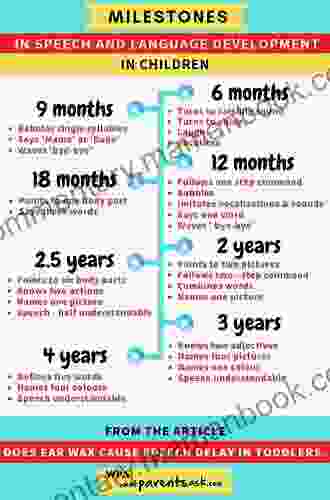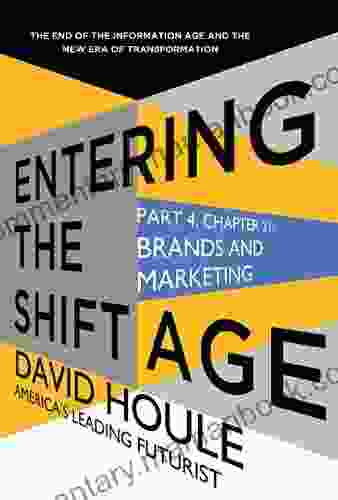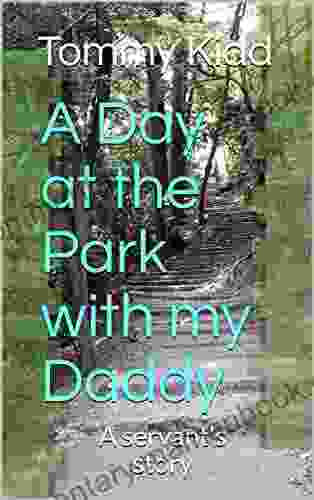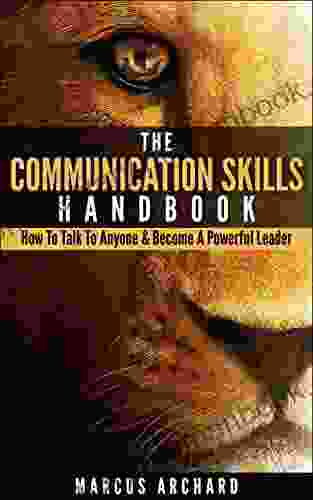Language Development For Science Activities For Home

Language development is a crucial aspect of a child's overall growth and future success. While traditional educational settings play a significant role in language acquisition, the home environment also offers immense opportunities for fostering these skills. By incorporating science activities into home-based learning, parents and caregivers can effectively enhance children's language development while fostering their curiosity and love for science.
4.4 out of 5
| Language | : | English |
| File size | : | 2463 KB |
| Text-to-Speech | : | Enabled |
| Screen Reader | : | Supported |
| Enhanced typesetting | : | Enabled |
| Word Wise | : | Enabled |
| Print length | : | 81 pages |
Benefits of Science Activities for Language Development
Engaging children in science activities provides a myriad of benefits for their language development, including:
- Expanded Vocabulary: Science experiments introduce children to new concepts, objects, and phenomena, enriching their vocabulary with specialized terms and everyday language.
- Improved Comprehension: By observing, discussing, and explaining scientific concepts, children develop their comprehension skills and enhance their ability to understand complex ideas.
- Enhanced Communication Skills: Science activities encourage children to communicate their ideas, findings, and questions, fostering their verbal and written communication abilities.
- Cognitive Development: Science experiments stimulate children's critical thinking, problem-solving, and reasoning skills, which are essential for language development.
- Social Interaction: When children engage in science activities with others, they have opportunities to interact, collaborate, and expand their social language skills.
Tips for Encouraging Language Development through Science Activities
To effectively foster language development through science activities at home, consider the following tips:
- Choose Age-Appropriate Activities: Select science experiments that align with your child's developmental stage and interests.
- Provide Hands-On Experiences: Encourage children to actively participate in experiments, allowing them to touch, explore, and interact with materials.
- Use Descriptive Language: Describe the experiments, materials, and processes using rich and varied language.
- Ask Open-Ended Questions: Prompt children to think critically and explain their observations by asking "what," "why," and "how" questions.
- Encourage Verbalization: Guide children to narrate their findings, make predictions, and share their thoughts verbally.
Specific Science Activities for Language Development
Numerous science activities can support language development. Here are a few examples:
1. Sensory Bin Exploration
Materials: Various items with different textures, colors, and shapes (e.g., sand, beans, rice, toys)
Activity: Let children explore the sensory bin with their hands, encouraging them to describe the materials they touch, feel, and see.
2. Baking Experiments
Materials: Baking ingredients (e.g., flour, sugar, eggs, baking soda),measuring cups and spoons
Activity: Guide children through simple baking experiments, such as making cookies or cupcakes. Describe the ingredients, measurements, and process.
3. Plant Observation Journal
Materials: Plant, notebook, pen or pencil
Activity: Observe a plant over time, documenting changes in its appearance, growth, and response to different conditions. Encourage children to write or draw their observations and discuss their findings.
4. Sink or Float Experiment
Materials: Variety of objects (e.g., toys, rocks, balls, feathers),water container
Activity: Have children test objects to see if they sink or float. Discuss the concept of buoyancy and density.
5. Magnet Exploration
Materials: Magnet, various metal and non-metal objects
Activity: Introduce the concept of magnetism and allow children to explore how magnets interact with different materials. Describe the characteristics of magnetic and non-magnetic objects.
Incorporating science activities into home learning is a highly effective way to nurture children's language development. By providing hands-on experiences, expanding vocabulary, and fostering critical thinking, science activities create a rich environment for language growth. By embracing these activities, parents and caregivers can support their children's communication, comprehension, and cognitive abilities, laying a strong foundation for their future success in school and beyond.
4.4 out of 5
| Language | : | English |
| File size | : | 2463 KB |
| Text-to-Speech | : | Enabled |
| Screen Reader | : | Supported |
| Enhanced typesetting | : | Enabled |
| Word Wise | : | Enabled |
| Print length | : | 81 pages |
Do you want to contribute by writing guest posts on this blog?
Please contact us and send us a resume of previous articles that you have written.
 Top Book
Top Book Novel
Novel Fiction
Fiction Nonfiction
Nonfiction Literature
Literature Paperback
Paperback Hardcover
Hardcover E-book
E-book Audiobook
Audiobook Bestseller
Bestseller Classic
Classic Mystery
Mystery Thriller
Thriller Romance
Romance Fantasy
Fantasy Science Fiction
Science Fiction Biography
Biography Memoir
Memoir Autobiography
Autobiography Poetry
Poetry Drama
Drama Historical Fiction
Historical Fiction Self-help
Self-help Young Adult
Young Adult Childrens Books
Childrens Books Graphic Novel
Graphic Novel Anthology
Anthology Series
Series Encyclopedia
Encyclopedia Reference
Reference Guidebook
Guidebook Textbook
Textbook Workbook
Workbook Journal
Journal Diary
Diary Manuscript
Manuscript Folio
Folio Pulp Fiction
Pulp Fiction Short Stories
Short Stories Fairy Tales
Fairy Tales Fables
Fables Mythology
Mythology Philosophy
Philosophy Religion
Religion Spirituality
Spirituality Essays
Essays Critique
Critique Commentary
Commentary Glossary
Glossary Bibliography
Bibliography Index
Index Table of Contents
Table of Contents Preface
Preface Introduction
Introduction Foreword
Foreword Afterword
Afterword Appendices
Appendices Annotations
Annotations Footnotes
Footnotes Epilogue
Epilogue Prologue
Prologue Lance P Richards
Lance P Richards Adam Bertocci
Adam Bertocci Herman Lehmann
Herman Lehmann Dick Lochte
Dick Lochte Josh Armstrong
Josh Armstrong Rets Griffith
Rets Griffith Pierre Joris
Pierre Joris Joyelle Mcsweeney
Joyelle Mcsweeney Hiag Akmakjian
Hiag Akmakjian Ambreen Razia
Ambreen Razia Shiro Amano
Shiro Amano Mary A Nies
Mary A Nies Adam Muller
Adam Muller Juliet Barker
Juliet Barker Anji Reddy Nalamalapu
Anji Reddy Nalamalapu Florian Zeller
Florian Zeller Douglas E Richards
Douglas E Richards Maya Rodale
Maya Rodale Laurie Pfalzer
Laurie Pfalzer Annette Lacroix
Annette Lacroix
Light bulbAdvertise smarter! Our strategic ad space ensures maximum exposure. Reserve your spot today!

 Aleksandr PushkinShooting Star Lawson Raines: An Extraordinary Journey from the Minor Leagues...
Aleksandr PushkinShooting Star Lawson Raines: An Extraordinary Journey from the Minor Leagues...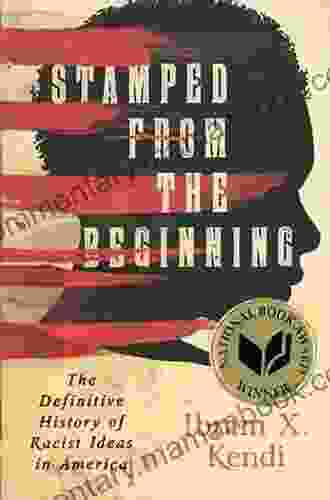
 Jeff FosterStamped From The Beginning: A Comprehensive Examination of American History...
Jeff FosterStamped From The Beginning: A Comprehensive Examination of American History... James JoyceFollow ·4.2k
James JoyceFollow ·4.2k William ShakespeareFollow ·3.6k
William ShakespeareFollow ·3.6k Dwayne MitchellFollow ·6k
Dwayne MitchellFollow ·6k Octavio PazFollow ·15.5k
Octavio PazFollow ·15.5k Darius CoxFollow ·13.9k
Darius CoxFollow ·13.9k John GreenFollow ·18.9k
John GreenFollow ·18.9k Edgar HayesFollow ·11.6k
Edgar HayesFollow ·11.6k Jamison CoxFollow ·3.1k
Jamison CoxFollow ·3.1k

 Kelly Blair
Kelly BlairSheppard Lee Written By Himself: A Journey of...
In the realm of...

 George Bernard Shaw
George Bernard ShawViper Naga Brides: Unveiling the Enthralling Fantasy...
In the realm of...
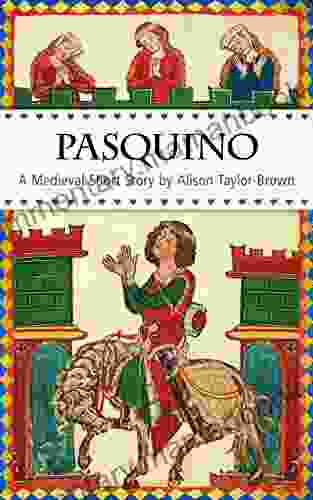
 Neil Gaiman
Neil GaimanOnce Upon a Hill in Tuscany: A Medieval Short Story
In the heart of medieval...

 Preston Simmons
Preston SimmonsBody Bereft: Exploring Loss, Love, and Legacy in Antjie...
A Poetic Requiem for the Lost:...

 Percy Bysshe Shelley
Percy Bysshe ShelleyThe Amazing Story Of Robert Smalls Escape From Slavery To...
The life of Robert Smalls is a testament to...
4.4 out of 5
| Language | : | English |
| File size | : | 2463 KB |
| Text-to-Speech | : | Enabled |
| Screen Reader | : | Supported |
| Enhanced typesetting | : | Enabled |
| Word Wise | : | Enabled |
| Print length | : | 81 pages |


